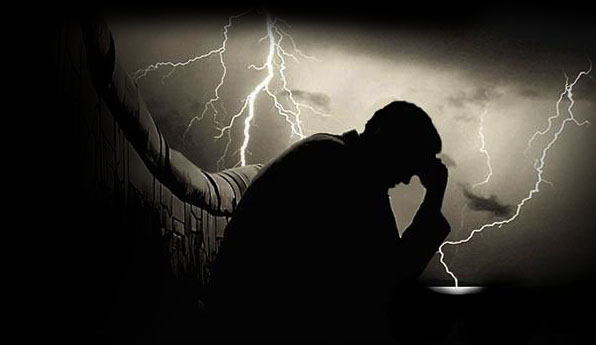In the Shadows: The Psychological Impact of Essential Shortages in Kashmir
By: Javid Amin
Kashmir, often described as paradise on Earth, now grapples with a crisis that extends beyond the physical realm — a crisis that delves into the depths of psychological well-being. The severe shortage of essentials, particularly electricity and water, is not merely an inconvenience; it’s a silent assailant on the mental health of the people, casting a long and ominous shadow over their resilience.
Darkness as a Daily Companion
Picture this: enduring 16 hours of darkness every day, a reality that millions in Kashmir face. The once steadfast electricity grid has transformed into an erratic source of hope, leaving households in prolonged periods of obscurity. The absence of light disrupts the ebb and flow of daily life, affecting routines, sleep patterns, and instilling a pervasive anxiety. The elderly navigate through the darkness with trepidation, fearing falls and injuries. Children, with aspirations illuminated by education, find their study hours eclipsed, their future hanging in precarious balance. Life’s rhythm is replaced by a disconcerting uncertainty that lingers in the shadows.
Water Scarcity: The Drip of Mental Burden
Water, the essence of life, now plays a game of hide-and-seek in Kashmir. Its availability, once taken for granted, has become a precious commodity. The daily struggle to secure this fundamental human right is a perpetual stressor, a mental burden disproportionately shouldered by women, traditionally tasked with household management. Their time and energy are drained in the ceaseless pursuit of water, adding another layer to the psychological strain faced by families already grappling with economic hardship.
Psychological Ripples
The repercussions of these shortages extend beyond immediate discomfort. They set off a chain reaction of psychological distress that corrodes resilience and chips away at hope. The ceaseless uncertainty, coupled with feelings of helplessness and the fear of failing to provide, becomes a breeding ground for anxiety, depression, and even post-traumatic stress disorder. Among the youth, the scarcity of opportunities and the looming specter of unemployment amplify feelings of frustration and despair, painting their future with shades of uncertainty.
Planned Psychological Pressure or Unintended Consequence?
Is this psychological pressure a meticulously planned exercise, or are we witnessing the unintended consequences of circumstances? Answering this question requires delving into the complexities of the situation. What is undeniable, however, is that these shortages wield palpable consequences on the mental well-being of Kashmiris. They are not mere inconveniences; they are the catalysts for a silent crisis demanding immediate attention.
Glimmers of Resilience in the Dark
Yet, the narrative need not be one of despair alone. Amidst the enveloping darkness, glimmers of resilience emerge. Communities band together, sharing resources and offering support. Local initiatives sprout, providing temporary relief and nurturing a sense of hope. Mental health professionals step into the breach, offering counseling and support mechanisms to those grappling with the psychological burden.
The Way Forward: A Multi-Pronged Approach
The path forward demands a multi-pronged approach. Addressing immediate needs — restoring electricity and water supply, providing alternative sources of light and energy — is imperative. Equally vital is recognizing the psychological toll and creating avenues for healing. Mental health awareness campaigns, accessible counseling services, and community support groups can play a pivotal role in mitigating the enduring impact of this crisis.
Bearing Witness and Seeking Accountability
Beyond immediate solutions, questions of accountability linger. How did Kashmir reach this point, and what are the long-term plans to ensure sustainable access to basic necessities? These queries demand honest answers and concrete action. Ignoring them prolongs the suffering, leaving a generation grappling with the scars of both physical and psychological deprivation.
Conclusion: Navigating Towards a Brighter Future
In conclusion, the essential shortages haunting Kashmir transcend the physical; they manifest into a mental health crisis. Disregarding the psychological repercussions of these shortages would be a grievous oversight. By acknowledging the problem, providing immediate relief, and working towards sustainable solutions, we can assist Kashmir in navigating through this darkness, emerging into a future where essentials are not a privilege but a right, and where hope shines brighter than ever before.






